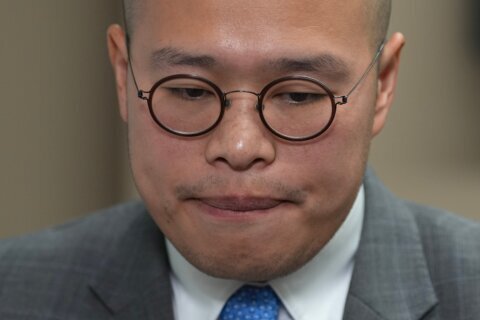Some view fatherhood as an end to independence. A time when beer bottles are traded for baby bottles and Netflix nights are eclipsed by diaper changes and late-night feedings. It might feel like your life has changed forever, and it will. But how young is too young to become a father?
New research published in the Journal of Epidemiology & Community Health suggests that becoming a dad before age 25 could have serious health consequences: an untimely death in middle age. Men who became fathers earlier in life were more likely to have poor health and die younger than men who delayed fatherhood until ages 30 to 44, the study found.
The researchers examined more than 30,500 men born between 1940 and 1950 who became fathers by age 45. Of those, 15 percent had their first child by age 22; 29 percent had theirs by ages 22 to 24; 18 percent by ages 25 to 26; 19 percent by ages 27 to 29; and 19 percent by ages 30 to 44.
The research team also looked at other factors, such as the men’s level of education, geographic location, marital status and number of children. During the 10-year follow-up period, 1 in 20 dads died. Ischemic heart disease was to blame for 21 percent of the deaths, while alcohol-related diseases accounted for 16 percent.
In addition, those who became dads by age 22 had a 26 percent greater risk of dying in midlife versus those whose first child arrived at age 25 or 26. Those who had their first child between ages 30 and 44 had a 25 percent lower risk of premature death than those who had children at ages 25 and 26. The findings held up when the researchers compared male siblings who had children within these age groups. The death rate of the older fathers was significantly lower than for their brothers who became dads by age 24, the study authors wrote.
It’s important to note that the study wasn’t designed to prove causation — that being a young dad spells an early death. It just found an association between the two factors. Still, the authors recommend increased support for young fathers who may be struggling with the demands of family life.
“Parenting at a young age can be challenging, and it is important that young fathers invest in their own well-being,” says Elina Einiö, lead study author and a researcher in the population research unit at the University of Helsinki. She says good health behaviors, including regular exercise, can help fathers of any age safeguard their health.
These grim findings didn’t even account for the considerable amount of psychological and financial stress that goes hand-in-hand with having a child in early adulthood — or any age.
Gordon E. Finley, professor of psychology emeritus at Florida International University, says the optimal time for fathering is unique and not etched in stone, and can range from ages 25 to 39, depending on where a man is emotionally and financially.
“Basically, you’re going to enjoy your fathering more if you become a father in that age range, as opposed to being a younger [or older] father,” he adds.
This is based on the idea that by their late 20s, many men have completed their education, established their careers, are more financially stable, and have a clearer sense of identity and a desire to contribute to the next generation, Finley says.
“Younger fathers are more stressed in a series of other areas, and younger fathers describe themselves as not being ready for fatherhood,” Finely explains, adding that some might just realize they are too immature and don’t have enough money.
Yet fathers between ages 30 and 40 seem to have mastered or overcome all of these obstacles.
“Given the modern industrialized society, somewhere around 25 to 30 is a good time to become a father. And it remains a good time to become a father until about 40,” Finely says.
Ronald F. Levant, a clinical psychologist and professor of psychology at the University of Akron in Ohio says masculinity is also at play. Younger men tend to see themselves in the traditional or “macho man” sense because they’re more insecure, Levant says. These men tend to have lower self-esteem or have difficulty articulating their emotions.
“As men age, they accumulate these statuses, which confirm to the men and people around them the fulfillment of the masculine role,” he says.
Men who have children later experience less inadequacy or what Levant calls “discrepancy strain.”
“Discrepancy strain has been linked to poor outcomes for men. It could theoretically be linked to mortality, but the research hasn’t been done,” Levant says.
How will you know if the time is right for fatherhood? The bottom line is to ask yourself, “Are you ready for this?” Levant says. If you still believe you have to conform to more masculine roles of being emotionally neutral — or putting on the tough-guy persona — give yourself a little more time. You just might not be there yet.
More from U.S. News
7 Surprising Things That Age You
The Best Foods for Lowering Your Blood Pressure
How Long Should You Wait for Fatherhood? originally appeared on usnews.com





